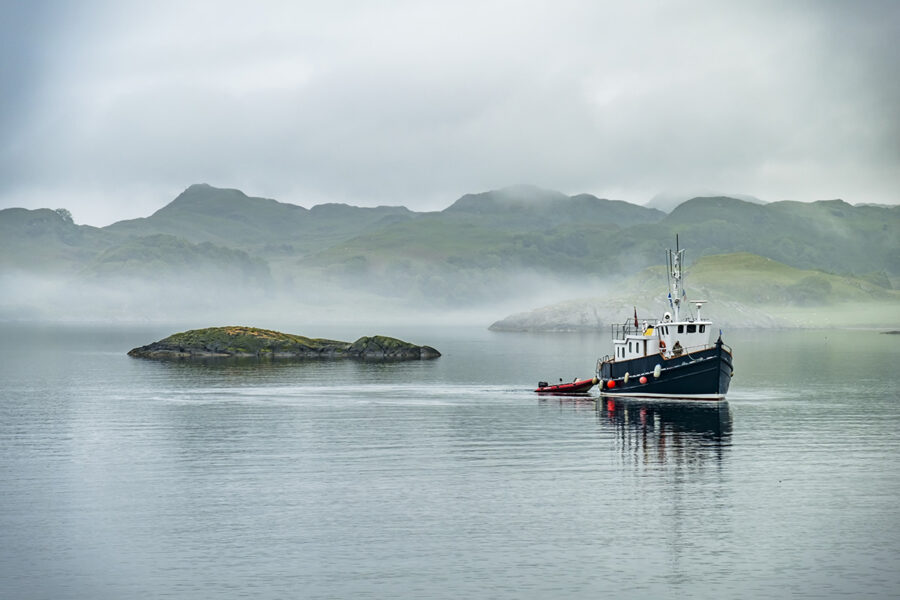The two Scottish POs that lost their legal challenge to the Scottish government’s new economic link conditions, requiring Scottish vessels to land 55% of their catches in Scotland by 2025, have confirmed they will not appeal against the decision.
The Scottish Fishermen’s Organisation (SFO) and Shetland FPO (SFPO), which between them represent the bulk of the Scottish pelagic fleet, expressed disappointment that the Court of Session ‘has upheld the Scottish government’s framework for increasing pelagic landings into Scotland’.
While stating their support for the principle of increased pelagic landings into Scottish ports, the two POs objected to the ‘highly interventionist’ approach adopted by ministers to deliver the policy outcome, and sought a judicial review of the policy.
In a joint statement, SFO chief executive John Anderson and SFPO chief executive Brian Isbister said: “The overwhelming sentiment among our members is one of disappointment and frustration that this situation ever warranted legal action against our own government.
“Clearly, we are disappointed with Lord Ericht’s judgement. We continue to support the principle of increased pelagic landings into Scotland but reiterate that this requires an equivalent increase in processing and marketing capacity – otherwise the competitiveness of our pelagic sector will be devalued in what is a thriving international marketplace.
“This policy is subject to review and open to amendment, so we will be monitoring the situation closely. If there is evidence that the market further develops in a way that is prejudicial to our members’ interests, we will take further action. However, in the meantime we can confirm that no immediate appeal against Lord Ericht’s judgement is being sought.”
The case was heard by Lord Ericht on 8 March, and arose because the Scottish government introduced new licence conditions on 1 January, 2023 that compelled Scottish vessels to land increasing proportions of their catch in Scotland.
The purpose was to make vessels demonstrate a genuine economic link to Scotland. Prior to this they could do this by landing 50% of quota stocks into UK ports, having 50% of crew normally resident in the UK, or incurring 50% of operating expenditure in the UK.
From 1 January, 2023, the latter two conditions ceased to qualify, while the landings condition was to incrementally increase to 55% by 2025. Prior to the licence variation, the SFO and SFPO used the crewing condition to fulfil the economic link.
Their legal representative argued that the new licence condition was unlawful under the terms of the 2020 Fisheries Act because it was being imposed to achieve an economic objective.
In his decision, Lord Ericht observed: “If the petitioners are correct that it is unlawful to attach to a fishing licence a condition which is for economic benefit, then that would have far-reaching consequences.
“It would mean not only that the new amended economic link condition was unlawful, but also that any economic link condition – including the economic link conditions currently in force in other parts of the UK – would be unlawful. The maritime equivalent of a coach and horses would be driven through current fisheries policy throughout the UK.”
The judge also ruled that the estimated financial cost to vessels of the new link, ranging from £198,000 to £267,528 a year, was outweighed by the estimated benefit to the Scottish economy of between £49.7m to £210.6m over 10 years. He expressed his surprise during the hearing about the high levels of profitability seen in the pelagic sector – levels that the SFO and SFPO said would drop if they were forced to land more of their catches in Scotland.
There has been significant investment in pelagic processing and storage capacity in North East Scotland since the introduction of the new requirement.
Scottish processors, including Denholm Seafoods, the Lunar Group and Northbay Pelagic in Peterhead, and Pelagia Shetland, are all investing in increased processing and storage capacity to maximise the benefits of the new rules to Scottish ports.
A Scottish government spokesperson said: “We are pleased to note the outcome of the Judicial Review proceedings. The delivery of this Programme for Government commitment has had a real, positive impact on coastal communities.
“Based on early pre- statistics release management information for 2023, the change has driven increased landings of mackerel (the nation’s most important species by value) into Scotland, and was noted by the Peterhead Port Authority as a driving factor in their record landed value of close to a quarter of a billion pounds.
“This change provides for an increase in fish processing and widens the socio-economic benefits from Scotland’s fishing opportunities.”
Provisional Scottish sea fisheries statistics for 2023 are due to be published on 22 May.
This story was taken from the latest issue of Fishing News. For more up-to-date and in-depth reports on the UK and Irish commercial fishing sector, subscribe to Fishing News here or buy the latest single issue for just £3.30 here.
Sign up to Fishing News’ FREE e-newsletter here.








